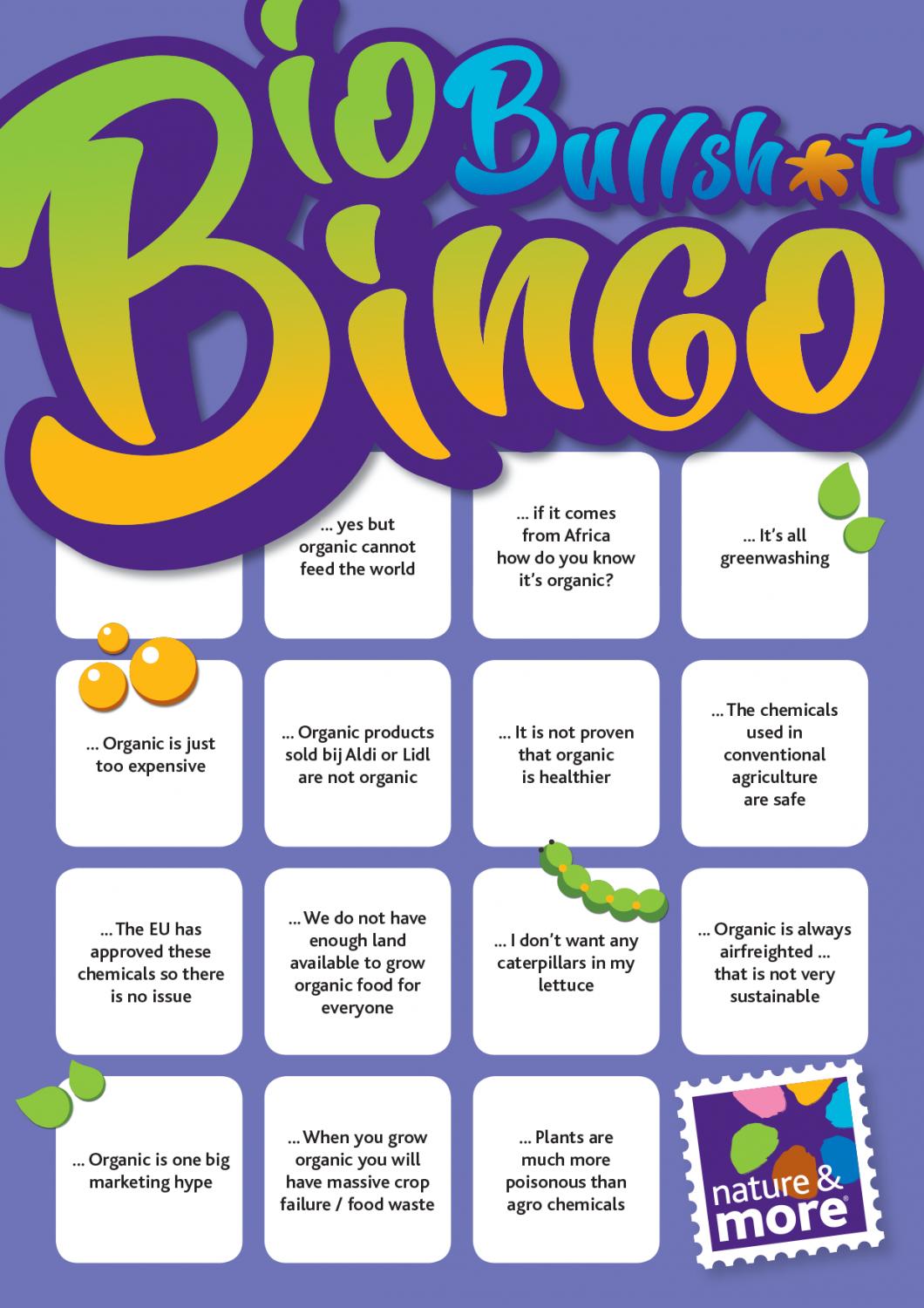The Sustainability Flower
The Sustainability Flower is the core of our business. Every Nature & More grower has a personal Sustainability Flower. It points the way to a greener and more social economy. More info here.

Everybody who works in the field of organic agriculture or sustainability will know that it is not uncommon to receive a barrage of critical questions about your work... “But organic is just one big marketing story”, “But organic cannot feed the world” or “Organic at a discounter? That is not organic.” However, when you work in less idealistic sectors you are seldom confronted with this type of inquisition... rather strange!
Therefore, for everyone working in the sustainable agriculture sector and who recognizes this phenomenon we have developed a special “Organic Bullsh*t Bingo”. Great fun when you have dinner with your future “in-laws”, a meeting with local authorities or if you get caught up in a debate with folks from the “conventional” sector. What are the rules? It’s very simple, just cross off the prejudices from the bingo card as you hear them and once you have a full card you can call out “Bullsh*t Bingo”... lots of fun for everyone!
To help you answer all the preconceived prejudices effectively, we have developed a special FAQ.
